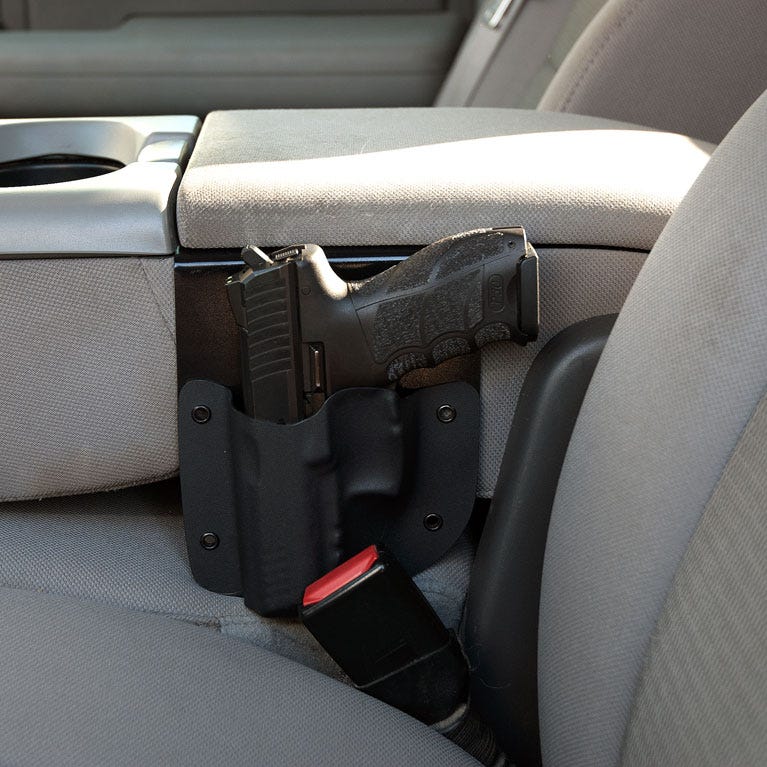Wrong on Rights
As a gun rights advocate, I anticipate with both glee and nascent schadenfreude the upcoming Supreme Court decision on concealed carry rights. As regulars know, I've been tracking the steady restoration of gun rights at the state level across the past few decades, a march that recently hit another milestone with the 25th state enacting Constitutional Carry legislation.
Since gun rights being widely perceived as a right-of-center phenomenon, no one should be surprised that all this has been under-reported by the mainstream press, and that in its stead we hear endless prattle about opposing gun violence (as if any good person supports gun violence).
Just as the Left asserts sole dominion over racial and social justice, the Right would have us believe that it is the sole bastion of individual liberty in the nation. Libertarians are, of course, ignored or patted on the head with "bless your hearts" derision.
That notion of the Right's defense of liberty clashes with another, possibly correlated trend - mandating that employers and private property owners permit gun possession on their premises. By some tallies, there are or will soon be 25 states that have enacted such laws (of various forms - some are limited to employees' vehicles on business property).
This highlights a disappointing trend, one we've witnessed across several more decades than the gun-rights movement: the continuing erosion of property rights.
To own something, and by extension to control something via contracted lease with its owner, is to have control over that something. Unfortunately, even many supposed staunch defenders of speech, gun, and religious rights fall short when it comes to defending others' property rights. People tend toward liberty solipsism, wherein they aggressively defend the rights that matter to them and either ignore or actually infringe on others' rights when it inconveniences them.
I've read much defense of these "must allow" laws from people I presume lean right and vote Team Red. They're not surprising, since so much of political discourse today is a mix of reflexive contrarianism and tu quoque fallacies, but they remain disappointing in that they demonstrate how too few actually understand how rights work.
Many have pointed at public accommodation laws as the part of the landscape that justifies such infringements, but as I discussed back in 2017 during the Masterpiece Cakeshop controversy, these laws were an imperfect "lesser evil" remedy to the systemic racism of Jim Crow laws, where the government prohibited business owners from serving blacks. Those laws were an egregious violation of property rights that precluded market forces and evolving cultural morality and inclusivity from remedying segregation. Today, a business that discriminated based on race would be eviscerated by the free market, bringing into question the continued utility of public accommodation policies, infringements of liberty that they are (really, we should be unwinding public accommodation laws, not expanding them). Especially so when such policies are now routinely leveraged for partisan political ends.
Meanwhile, there are countless forms of commerce that aren't covered by the public accommodation bit. Is an artist obligated to sell his work to whomever pays the most, for example? Must a writer allow his work to be purchased by an outlet he doesn't care to be associated with?
Here's where so many liberty solipsists go wrong:
You do not have the right to infringe upon another's liberty in exercising your own. Your right to swing a fist ends at the tip of my nose. You don’t get to elevate one right over another. You cannot declare that Right X trumps Right Y without destroying the meaning of the word "rights."
It can be argued that an employee that parks his car in an employer's lot nevertheless retains dominion over the interior of that car, and therefore the employer doesn't have the right to preemptively prohibit certain objects if they remain in the car. The counterargument there is that employment is a voluntary arrangement, that both parties agree to the terms ahead of time, and that the employer can indeed restrict what happens on his property as part of those terms.
There's the nuance that underlies the less egregious of these ham-fisted laws (there’s no rights-based argument at all for requiring employers to allow employees to concealed carry on company property). Arguably, the right of contract is near-absolute between private parties. And, arguably, an employer who imposes too many rules on potential employees may have a hard time finding enough good workers. But, given the extreme government-created complexities in employer-employee relations, does a protection for gun-in-the-car (that's the mildest version of all this) move the rights needle in a good direction?
We can debate that. We should not, however, pretend that it's proper to infringe on certain rights in advancement of others.
If you enjoy The Roots of Liberty, please subscribe (if you have already, thank you!), and please recommend the blog to your friends! While I share it as much as I can on social media, subscribing ensures you won't miss a post.
If you really like The Roots of Liberty and want to help keep it rolling, please consider becoming a paying subscriber here at Substack, or at a lighter level as contributor to the blog via Patreon.
Thank you for your support!
Yours in liberty,
Peter.



Man! You are “singing my song” today! While I am a staunch Second Amendment fan, I also treasure and value property rights, and hold them in very high regard.
Most of the employers I know and businesses I frequent ban weapons on premises - even where I work, which is owned by a staunch right-winger and gun owner. Why? Insurance companies believe "guns on the premises = murder = liability". So they put the sticker on the door and put the policy in writing, or get refused liability insurance. SO! A new fight for us!